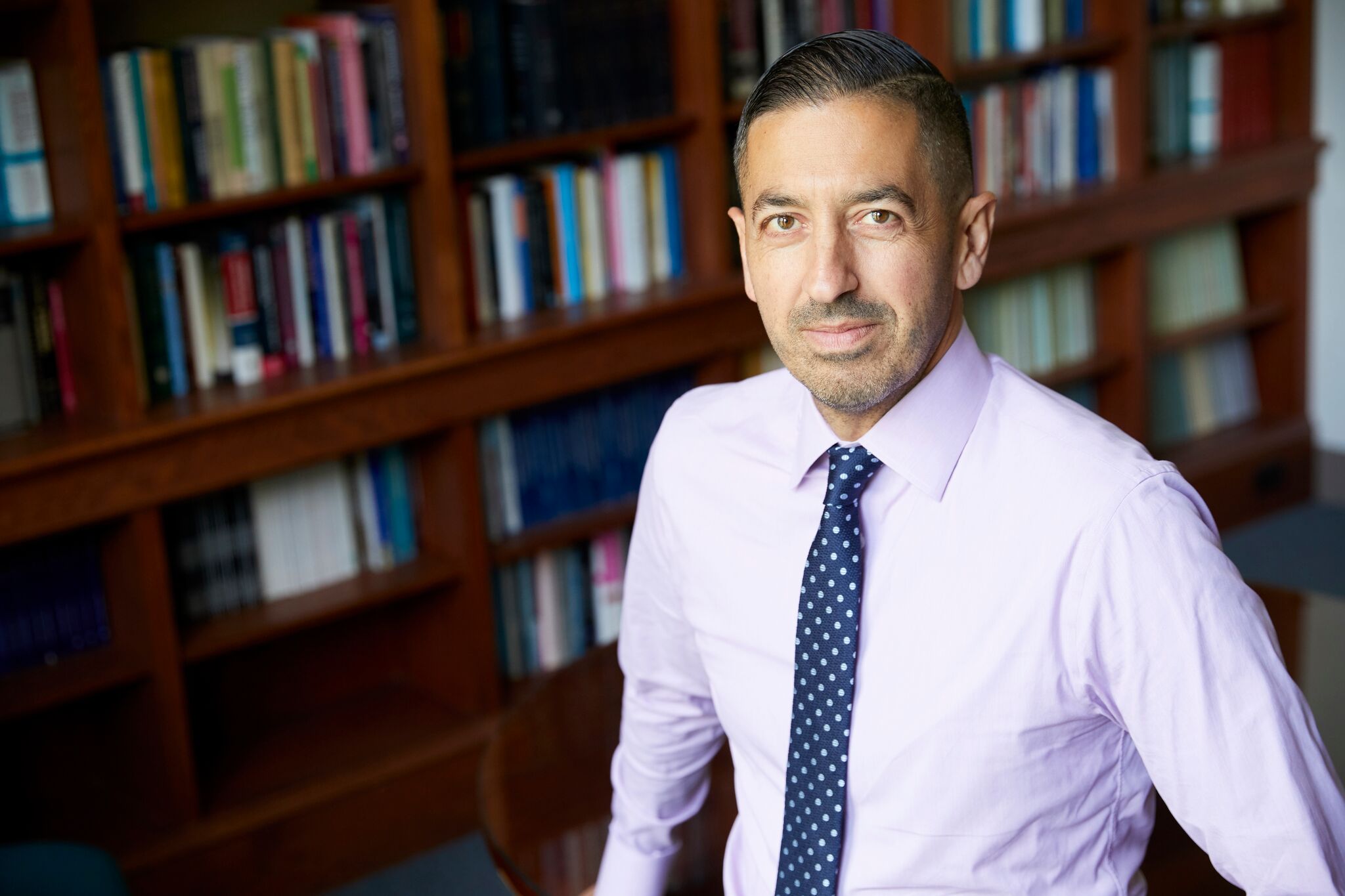This piece was first posted on Substack. To comment, please go there.
When the Black Death struck Europe, it turned society upside down. The scale of the mortality—possibly up to a quarter of the population died from the plague—transformed economic systems, inflected religious thought, upended old institutions, and created space for new ones to emerge. It struck at the heart of the feudal system, which had long been the defining economic feature of the Middle Ages. For the first time, peasants no longer had to accept the terms dictated to them by the lords for whom they labored. With the population decimated, there were fewer people to work; those who remained were able to use their new leverage to demand better pay and conditions. Meanwhile, with the established authorities powerless to stop the spread of the disease, people began to imagine new approaches to scientific, political, and spiritual questions, paving the way for the currents of thought which would inform the Renaissance, a period which would, in turn, provide much of the intellectual grounding for the Age of Enlightenment.
It is significant that a pandemic would play a role in birthing these intellectual movements. The philosophies which emerged and were refined after the Middle Ages provided many of the values we now use to support health, and which have helped us to address the current pandemic, COVID-19. Centrally, these values are reason, the scientific method, and the pursuit of progress as a common goal worth striving toward. It was during the Enlightenment that our means of understanding the world shifted towards the collection of empirical data, and away from uncritical acceptance of revealed truths or articles of faith. This still serves as the template for scientific inquiry, shaping everything from our understanding of the socioeconomic determinants of health, to the research which has delivered a COVID vaccine.
But the legacy of these intellectual advances includes more than scientific methodology. Questioning the sociopolitical status quo led to the development of the basic principles of what we now call liberalism—not liberalism as it relates to the left-right political dichotomy; liberalism as in the liberties and democratic norms that undergird our entire system. These principles enable society to accommodate the difficult, often contentious, debates which allow us to generate insights without this conflict threatening the integrity of the system itself.
We are so used to being the beneficiary of these principles that we can take them for granted, or mistake the status quo they enable for the state of nature, rather than see it as a fragile inheritance at variance with how humans have interacted for most of our history. A fundamental notion of liberalism is that humans are going to disagree, hence it is important to create societies that can accommodate these disagreements and channel them in positive directions. That is dramatically different than embracing objects of belief and forms of religion that create conflict between ingroups and outgroups.
Public health is in many ways a paradigmatic project of the ideas that informed the Enlightenment. Its foundations are the scientific methodologies that generate data, and the reasoned debate that generates and sharpens ideas. Science helps us acquire knowledge; a process of reason, peer review, and public conversation helps us determine how to best apply what we know. Aspects of this progress account for many public health milestones, from John Snow’s empirical work to identify the source of cholera in 19th century London, to Rudolf Virchow’s conclusion that health is inseparable from social, economic, and political conditions, to the process of research and public debate which, over the course of many years, made these conditions the core focus of public health, to all the work we have done to make progress against COVID-19. None of this progress was the result of ideology or blind faith—indeed, some was made in spite of these forces, with prevailing dogma and assumptions at times working against the not-always steady march of empiricism.
This was the case, for example, with Ignaz Semmelweis, a Hungarian obstetrician whose research suggested the power of hand-washing to reduce sickness and death. Years before the confirmation of germ theory, Semmelweis pursued the hypothesis that doctors were making women sick by performing autopsies in hospitals prior to delivering babies. By requiring hospital staff to wash their hands in a chlorine solution, Semmelweis significantly cut in-hospital deaths from the bacterial uterine infection that was a common postpartum killer at the time. One would think this would be the end of the story, with hand-washing widely adopted by doctors all over the world as a simple way of keeping patients safe. In fact, it was the start of a years-long battle against doctors’ belief that, because they were “gentlemen,” their hands could not possibly be dirty. They had no data to support their position, but their certainty proved durable, and Semmelweis’ struggle to change their minds eventually cost him his own health—he died in a mental institution at age 47.
The struggle of Semmelweis has lessons for our present moment. All around us, we are seeing conflict between data-informed reason and faith-based certainty. As demonstrated by the doctors in Semmelweis’ story, faith does not always come in the form of religion. It can also reflect political ideology, settled opinions about the world, or aspects of our self-image we find hard to give up. In present-day America, these certainties include beliefs about the rightness or wrongness of certain responses to the pandemic, beliefs about whether key institutions are trustworthy or not, and convictions about the virtues of one political side and the vices of another.
These certainties have been heightened by a moralism which has cast even seemingly trivial matters in sharply Manichean terms. Thus, we have seen the choice of whether to wear a mask framed as a question of whether or not one will choose to be a good person. We have seen much of what public health authorities say characterized as either science-based gospel, or utter nonsense, depending on the ideological leaning of the listener—the same goes for the words of former President Trump. Perhaps closest to home for those of us working towards progressive change: we have seen anything less than an embrace of the most radical overhaul of our society cast as hopelessly reactionary, a betrayal of the aim of creating a healthier world.
Science has not been exempted from occasionally making statements arguably based more on ideology and passion than evidence. We have seen this, for example, in various statements about the viability of zero COVID strategies for ending the pandemic, or statements suggesting vaccines, once widely adopted, may not be enough to end the acute threat of COVID. Taking extreme positions does not, of course, threaten the framework of liberal discourse. Yet, as the public debate has increasingly reflected a zero-sum approach to engaging with core issues, a tension has begun to emerge between how we talk to each other and the fundamentals of the liberal project. When a conversation becomes not about opposing ideas, but about opposing sides; when passion leads one to condemn not just one’s opponents but the system which allows them to speak (forgetting that it also supports our own ability to do so), we near a point where the tradition of open debate, and, by extension, the liberal project itself, faces risk.
When opposing sides can see only their own rightness and their opponent’s wrongness, they miss the nuance which characterizes any issue of importance. This is not to say there are not moral absolutes, or positions on which we should not give way. But there is a difference between engaging with debate while remaining firm in our convictions and concluding our convictions dictate no debate is possible. The emotions of the moment have made it possible to see the act of debate itself as de facto compromise with ideological undesirables, rather than as a chance to expose bad ideas while shoring up support for good ones. Where the Enlightenment emerged in opposition to the received wisdom of religious authorities, the new articles of faith—less monolithic than a church, but no less powerful in their ability to motivate conviction—now threaten the Enlightenment’s legacy in our own time. In doing so, they threaten the core functioning of public health. We cannot apply the best possible thinking to the health challenges we face if that thinking is not allowed to unfold in a context of honest conversation and reasoned debate.
Restoring such a context is our collective responsibility. The Healthiest Goldfish aims to play a small part in helping us do so. This project emerges in muddled times, at a moment when public health has never been more prominent, or, in my assessment, more adrift from a coherent intellectual foundation. Perhaps that is inevitable in a time when crisis has intersected with a shift away from the norms which for so long characterized the post-Enlightenment, liberal discourse.
Given these factors, it is worth taking a moment to ask: who are we? What are we doing, and why? I submit that public health should aspire to a radical vision of a better, healthier world for all, and should have the wisdom to achieve that world through gradual reform, guided by reason. I mean reason as the process of thinking, understanding, and forming judgement by means of logic. I also mean reason as a contrast with dogmas of any kind. Reason pushes us to be critical of what we think, what we say, and how we act. It encourages us to be skeptical of received wisdom, and to assess alternatives systematically, recognizing the often-unintended consequences of actions within complex systems. Because reason requires engagement with others, it also helps us to look beyond our own interests, our own assumptions, towards a vision of the common good.
Just as the Black Death helped catalyze key socioeconomic and intellectual shifts, we are approaching the end of a pandemic whose impact has also caused us to engage with new ways of thinking and doing. The COVID moment—notably, the swift development of vaccines—has certainly elevated the star of science. It has also created new inroads for passionate opinion. We do not lack for intense moral sense animating the public debate. But while passion is always helpful for the articulation of a radical vision, we should take care it does not overwhelm our capacity for reasoned thought. We should likewise be careful our scientific advances do not create complacency about maintaining the framework of reason which allows them to emerge. We can have the most cutting-edge science and still neglect the reasoned discourse which informs progress—progress defined as the creation of a healthy world. In the story of Semmelweis, scientific findings were useless when faced with an unwillingness to look past entrenched dogmas and engage with new, perhaps uncomfortable, ideas. We cannot afford this lack of vision at our current inflection point. We must do better, if we wish for the post-COVID era to have more in common with the Renaissance and Enlightenment periods that followed the Black Death than with the Dark Ages that preceded it.


